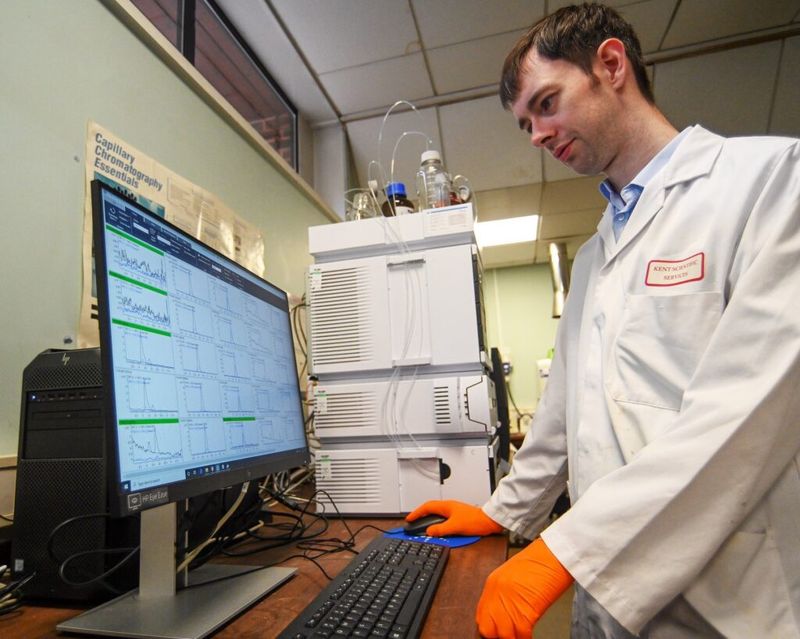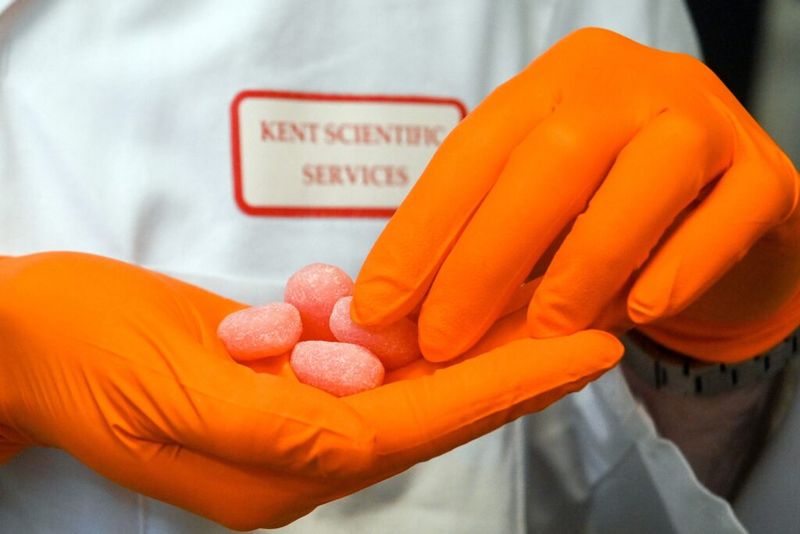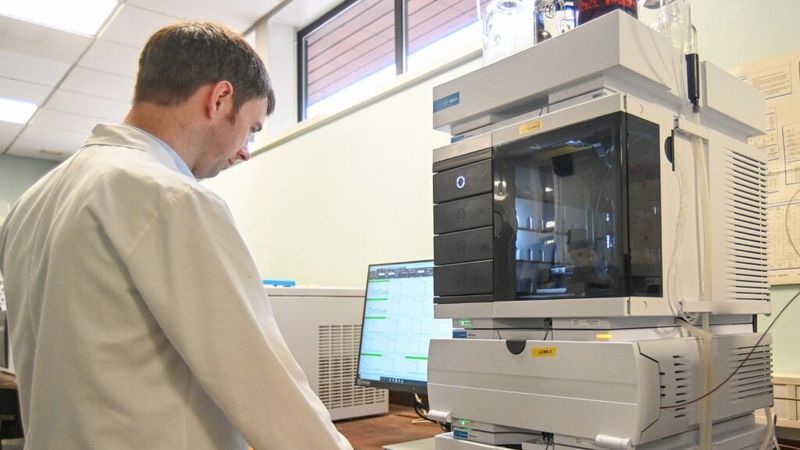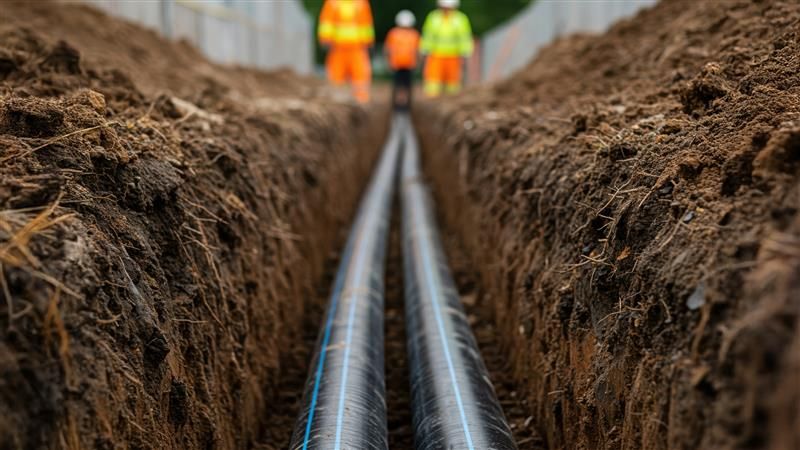At the same time, several products were found to contain hardly any CBD element at all.
Testing has been carried out on behalf of several local authorities by Kent Scientific Services, the Official Control Laboratory operated by Kent County Council.

A senior scientific officer at Kent Scientific Services at work on the testing equipment.
CBD is classed as a novel food and is currently being assessed for safety by the Food Standards Agency. The FSA has allowed about 6,000 products to be marketed in the UK, pending final approval. If the product is on the list, it can be sold; if it is not on the list, it cannot.
KSS Public Analyst Jon Griffin who led the testing said:
"CBD is the non-psychoactive element of cannabis. It is suggested it can have benefits including reduced anxiety, assisting with sleep and managing pain. On its own CBD is not an illegal controlled drug."
The results of testing on the first 61 products for various interested bodies including Kent’s own Trading Standards service have shown that:
- 44 samples contained one or more of the psychoactive elements of cannabis. These are controlled drugs and therefore are illegal
- Several contained significantly less CBD than claimed on the pack. Up to 99% deficient.
- 2 did not claim to contain any CBD but did. Neither of these contain any controlled drugs
- 2 contained products which are not on the FSA list.
So, in total, of the 61 samples, 72% contain one or more of these psychoactive elements of cannabis.
Mark Rolfe, the Head of KSS, said:
"The issue with this, in my view, is that people don’t know what they are consuming. We have tested one sample for a member of the public who has failed a workplace drugs test having, he says, never touched drugs in his life. He has, however, consumed this product which we have found to contain the drug for which he failed the test."
The kind of products involved, he said, are wide ranging. Some are foods (and thus covered by the FSA list) and cosmetics and some vapes. Neither of the latter two types are covered by the FSA list.

Image of cola chunks, one of the products which had illegal ingredients
Examples of the products are:
- cola chunks
- marmalade
- CBD oil
- gummy bears
- cookies
- lollipops
- CBD drinks
- vapes of various flavours including lemon drizzle, watermelon and raspberry
- muscle balm
- beard oil.
The result of the analysis of each product is sent to the agency or service which commissioned it from KSS for them to determine what action to take.
- Kent Scientific Services (KSS) is Kent County Council’s in-house scientific testing laboratory based at Kings Hill, providing scientific support to local authorities, Coroners and businesses in Kent and further afield.
- KSS carries out testing of food, animal feed and consumer goods as well as toxicology testing for Coroners and testing of standards of weight and measure and is one of only four Official Control Laboratories designated by the Food Standards Agency in England.
- KSS is an accredited laboratory under ISO 17025, accredited by UKAS under certificate numbers 1398 and 0352.
ENDS.




